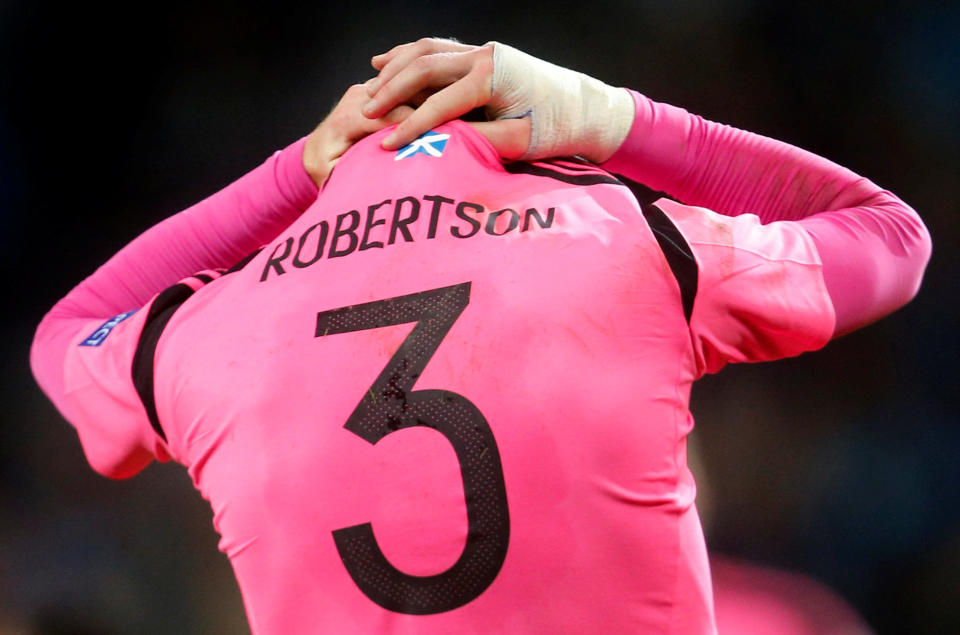Tartan's no longer in fashion. A very English issue behind Scotland's big decline

It was oh so close again for Scotland, the brave and, as so often, the beaten. Like always, they bow out with their heads held high but north of the border they are getting a little sick and tired of the sob stories.
The Tartan Army want their time to come again, but even the resuscitation of a qualification campaign which looked all-but dead was of little consolation.
New life didn’t seem anywhere near enough for the SFA. Gordon Strachan leaving this afternoon for falling just as short as he claims his squad is, the governing body’s ruthlessness demonstrates that they feel they should have been in Russia. But should they?
A nation that deals in near misses like it is currency, why is this the closest the Scots have come for so long to getting to a major tournament?
READ MORE: Strachan steps down from Scotland duty
READ MORE: Injured on duty, the clubs paying the price for international commitments
The globalisation of the Premier League has to take its fair share of the blame for the sorry state of the Scottish game. Strachan may oddly attack genetics, but the main reason why it will soon be 20 years since their last summer of fun lies at the door of their rivals from down south.
Failure to emerge from the group stages once again can be traced to the Auld Enemy.
The poor neighbours have been left feeding off scraps as the Premier League has gone from strength to strength, and getting richer and richer.
Whilst they can only gawp at the billions swilling around, it’s not just a case of bitterness in the boardrooms of the Scottish Premier League. A division which once harvested their players has not nearly cut ties.
In the 70s, 80s and the 90s, Scottish players were actually the heartbeat of the English game. They would rather they do it on their own land, but there was a pride in place that Scotland was so well represented.
Modern day, think Gary McAllister, Colin Hendry or David Weir. John Collins or Kevin Gallacher perhaps. Even the likes of Kenny Miller, Alex Rae and James McFadden thrived thanks to getting games.
Before them, of course, the greats. King Kenny Dalglish, Denis Law, Alan Hansen, Archie Gemmill, Graeme Souness and Strachan himself made their names in England. Huge clubs, massive names.
How different things are in 2017, and how it seems there is now no going back.
Only Liverpool’s Andrew Robertson, a summer signing from Hull, is on the books of a club in the top six.

Two from West Brom, one from Stoke City with Crystal Palace, AFC Bournemouth, an Englishman in Newcastle make up their numbers. Amazingly nine of the squad from the final two qualifiers ply their trade in the Championship. There was even a spot for a League One player, Blackburn’s Charlie Mulgrew.
The same finger of blame is pointed in their direction of England’s lack of options, thanks to the foreign imports. The clubs of pedigree – or in fact most clubs in the top flight – now don’t think Tartan is in fashion.
It seems obvious that here’s less faith in the Scottish players now than there used to be and that could be because of those at the helm.
For the first time ever, the Premier League has run without a Scotsman in charge of a club. Back in 2011, there were seven taking charge of teams on the first day of the season. The Sir Alex Ferguson factor has played a part, it seems that since the great man left office less and less trust have been placed in his countrymen.
As the anthem goes, when will we see, his like again.

 Yahoo Sport
Yahoo Sport 





































